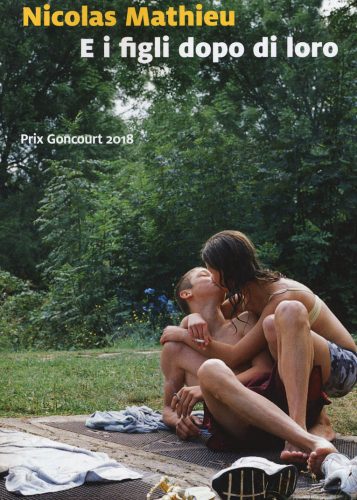Nicholas Mathieu is a French journalist and author born in 1978 who recently made appearances on gossip columns. We met him before in Venice at a literary festival. His novel And Their Children After Them won the Goncourt Award and is almost 500 pages long. It’s still a page-turner, though. The story flows as freely as one can expect. It all starts with the year 1992 and the life of teenagers deep in the French countryside. The first awkward kiss, the first joint, a thirst for rebelliousness, and for escape. For Frenchmen, that would mean Paris, but for immigrants from Northern Africa, it might mean their home country. What do they have in common? Their extra-long baguette sandwich with cheese, earphones on all the time, and one truth held dear: “Parents are dumb”. Music dominates the atmosphere, ranging from reggae songs to Cyndi Lauper. The more intellectual teenagers read Camus, they read Go Ask Alice. Parents complained, too. They used to have an adored baby boy, and now they have a half-brute whose feet stink, who wants to get tattoos, and who lays about all the time like some thug.

Adapted from Nicolas Mathieu’s novel of the same name (winner of the 2018 Goncourt Prize), the story takes us back to August 1992 in a remote valley in eastern France, where industries are closing down. To escape the boredom of the swelterin...

On to 1994: kisses are more daring, parents are still dumb (“servile, exhausted, TV guide on one hand, a scratch-and-win in the other”). Some socio-political reflection gets more explicit “Blue-collar workers don’t mean jack anymore. Their epos is out of fashion now”. Time to make choices, time to pick schooling. Vocational education, maybe? The first jobs, and the unfailing longing for escape. Now it’s 1996: the boys come of age and “find themselves in a world so fierce they would have never believed”. Hacine, who tried to move back to Morocco to start, unsuccessfully, a drug trade, is the first to get married and have kids, as well as to find himself lying on the couch with his father-in-law to watch the Eurovision Song Contest. Anthony just took a factory job and sees Steph, his love from a well-to-do family, move to Canada to meet his journalist fiancé. At least he is able to reconcile with his mother. Stories don’t seem to ever change…